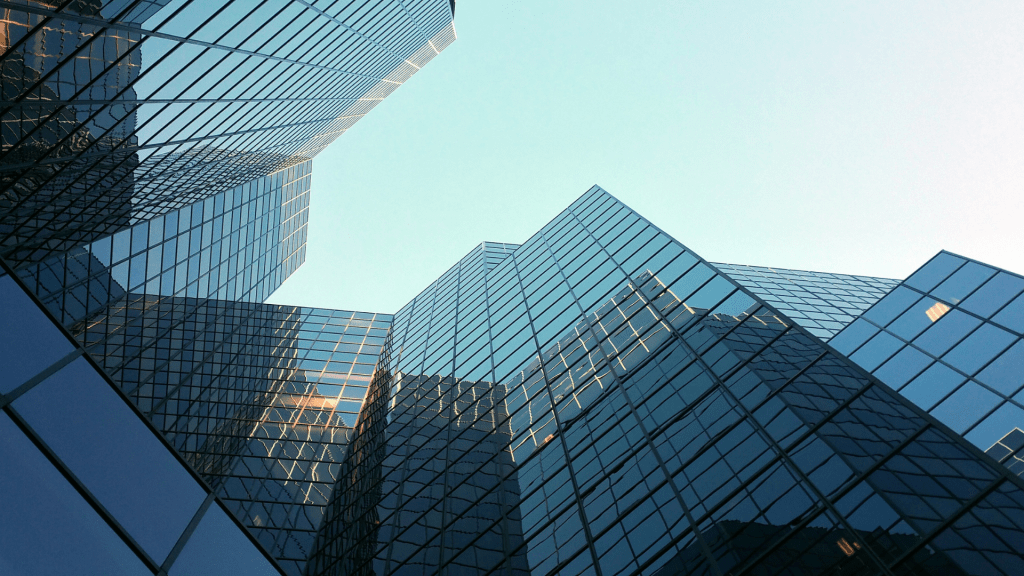World-renowned German companies: in which industries are Germans successful? How many industrial giants are there in the country? Which German brands are most popular outside of Germany? Deutsch WTF will answer these questions!

Excellent quality, practicality, comfort and taste – this is exactly what the ‘Made in Germany’ label is rightly associated with. So what makes German products so popular? Certainly, the typical German neatness and diligence. In this article, you will learn about the most popular brands in Germany’s automotive, chemical, food, light industry and other manufacturing sectors, as well as interesting facts about their history.
A little bit about everything
World famous German brands have a rich history, moreover their business is in fact inherited. Today in Germany there are several dozen industrial giants in various industries, their brands are known far beyond the borders of the country. Of course, it will not be possible to list all the popular German companies, but I have selected the most interesting representatives Germany’s most important industries.
Automotive concerns
The automotive industry occupies a significant share not only in the German economy, but also in the economy of the entire European Union. In addition, Germany is among the top 4 car manufacturers in the world.
1. Volkswagen
From the German language, the brand name literally translates as “people’s car”. If you have ever been to Germany, you must have noticed that it is so. The Germans highly value their car industry and prefer German-made cars, and the Volkswagen brand is one of the most popular.
The company began its work much later than other German automobile concerns – in 1937, and, nevertheless, achieved a resounding success. At one time, one of the company’s highlights was the production of environmentally friendly cars, which significantly increased its popularity in countries that are not indifferent to the “green” issue. Currently, the Volkswagen concern is one of the world leaders in the production of automobiles. (In 2018 alone, more than 11 million people became owners of Volkswagen cars!)
2. BMW
The abbreviation BMW is translated from German as “Bavarian Motor Plants”. It is one of the most renowned manufacturers of automobiles as well as motorcycles, engines and bicycles.
For the first half of its history, BMW was considered a small hopeless company and few people were willing to invest in it.
Currently, BMW is one of the most stable companies in the world. The company, which began its history as a small plant designed to product of aircraft engines, has now 5 factories in Germany and 22 around the world.
Chemical concerns
The chemical industry is one of the historically developed fields of activity in Germany. Germany is one of the world leaders in the chemical industry, but in recent years it has been losing ground to the United States and Japan, while undoubtedly remaining a quality manufacturer.
1. Bayer
One of the largest chemical and pharmaceutical concerns in Germany is Bayer, which is known far beyond the borders of the country.
The history of the brand dates back more than a century and a half ago, and the modification of acetylsalicylic acid was the first production product.
A dark spot in the history of the brand was the drug experiments that were carried out on humans during the Second World War. The Bayer brand is currently represented by about 400 companies worldwide. Several thousand chemists are working on the development of many new products in the health food industry. (btw click here to find out how to find a job in Germany online
2. Merck
Merck is a giant of global pharmacology, originating in the city of Darmstadt, where the headquarters and main production are located today. The history of the company dates back to the 17th century, when Friedrich Jakob Merck founded the family pharmacy.
Over time, the company expanded its production, and the drugs produced by Merck began to be in great demand. Currently, more than 40 thousand employees work at the enterprises of the Merck group, and the company’s production facilities are located in 66 countries… In addition to the production of medicines, the company is engaged in the manufacture of high-tech materials and the development of biopharmaceuticals.
Energy companies
In recent years, Germany has been trying to rebuild the energy sector and reorient it towards clean energy, but at the same time large energy companies maintain their positions in the market.
1. E.ON
The largest electricity, gas and water company in Germany is E.ON. More than 21 million people are its customers. The headquarters of the company, formed in 2000 by the merger of an oil and gas concern with a Bavarian industrial group, is located in Essen.
In addition to Germany, the company operates in other European countries and even the United States, and in 2019 the company acquired its main competitor – innogy SE.
2. RWE
Another major energy company headquartered in Essen is RWE. The energy supplier began operations in 1989, founded by the city’s mayor, Erich Zweigert, and one of the entrepreneurs involved in coal mining.
Today, the company is engaged in lignite mining, the generation and sale of electricity generated from thermal and nuclear power plants, and the supply of natural gas. The company’s main operations are concentrated in Germany, and it also supplies electricity to countries in Europe.
3. Enercon
Enercon GmbH is one of the world’s largest wind turbine manufacturers and the largest wind turbine manufacturer in Germany.
- The company was founded in 1984 and development of the 55 kW turbine began in the same year.
By the beginning of 2009 Enercon had installed more than 13 thousand wind turbines in 30 countries of the world. Their total capacity is over 15,000 MW. In 2010, the company took the fifth place in the world in terms of the total capacity of the equipment produced per year. The company’s factories are located in Germany, Sweden, Brazil, India, Turkey and Portugal.
Shipbuilding
Germany is the leading European economy in shipbuilding. The Germans account for a fifth of the entire shipbuilding industry in the European Union. German shipyards are mostly distributed in northern Germany, but river shipyards and ship equipment manufacturers are distributed throughout the country.
1. Lürssen
At the end of the 19th century, a young man named Friedrich Lürsen opened a boat workshop near Bremen. Soon the boats made by him became very popular due to the fact that they won regattas.
A few years later, this workshop produced the world’s first motor boat 6 meters long. Its customer was Gottlieb Daimler, who wanted to test a new engine on it.
✶ In 1927, the increasingly famous company built the largest motor yacht at that time in the world – 36 meters long.
For more than a century of history, Lürssen has created more than 13 thousand boats and ships… Currently, the concern for the production of ships specializes in the construction and design of luxury yachts, is engaged in the construction of warships and special-purpose ships.
Alcoholic beverages
Germany is historically known as one of the most beer-drinking countries in the world. Germany is home to both the world’s largest breweries and small city breweries that are in great demand among tourists.
1. Krombacher
Krombacher is the best-selling beer in Germany and one of the largest private breweries in the country.
- The first brewery was established in 1803 at an inn, as the 1612 law required at least a small brewery to sell beer.
Now Krombacher produces different types of beer, but the most popular and beloved by the Germans is the Pilsener.
2.Löwenbräu
One of the most famous beer brands in the world, Löwenbräu is German-made.
Legend has it that the inn on whose site the brewery was built dates back to 1383. By the 19th century, the Löwenbrauerei had become the largest brewery in Munich.
- Löwenbräu is one of the six breweries that sell beer at Oktoberfest.
The brewery suffered a lot of damage during the Second World War, but after the end of the war it was restored and a couple of years later the beers loved by the Germans were exported to other countries.
Appliances and electronics
Germany is one of the leaders in the electrical industry, its main companies are known around the world and are a mark of quality. The electrical engineering sector is second only to the automotive industry in Germany’s economy, but is growing faster, even in relation to GDP.
1. Siemens conglomerate
No other German company has as many employees as Siemens. Around half a million workers, researchers and managers work for this company in different cities in Germany and in its subsidiaries in 190 countries around the world! Siemens has many branches and plants that produce household appliances, electronics, electrical engineering, communications equipment, medical devices, and so on.
The company was founded in 1847 by inventor Werner von Siemens. The group’s headquarters are now located in Berlin and Munich.
2. Braun GmbH
The German city of Kronberg is home to the headquarters of an engineering company whose electric shavers, irons and steam generators and medical technology are renowned in many countries. This, of course, is Braun.
Several categories of the brand, including “beauty and health” are now sold to Procter & Gambl. Braun appliances are manufactured not only in Germany, but also in China, Mexico, Hungary, Spain, Poland, the Czech Republic and Ireland.
3. Bosch Group
The precision mechanics and electrical engineering workshop founded by Robert Bosch in Stuttgart in 1886 was the birth of the world-famous company Bosch.
- Few people know it, but the first range of hand-held electric tools, the first rotary hammer, the automated lawn care system and many other innovative technologies were invented there.
Today, the company has offices all over the world. The main focus of the brand is the development and implementation of innovative technologies aimed at improving production processes.
Food industry
The food industry is one of the most important industries in Germany and Europe. Together with the automotive, electricity, mechanical engineering and chemicals industries, it is one of the five largest industries in Germany.
1. Haribo
In 1920 a young pastry chef, Hans Riegel, opened a company which, years later, grew into a giant manufacturer of world-famous rubber sweets. The confectioner’s start-up capital was small: a bag of sugar, an oven, a copper kettle and a rolling pin. Incidentally, the company name was derived from the initial letters of the first name, surname and town – HAns RIegel BOnn. (HAns RIegel BOnn macht kinder froh und erwachsene ebenso)
At present, Haribo has 18 factories in Europe, five of which are in Germany. The popularity of the brand is proved by export volumes. The rubber bears are supplied to 105 countries. Every day 100 million gold bears are produced all over the world, and the chain of these sweets, made during one year, can wrap the globe four times.
- Already 10 years ago, the company developed its own mobile app, which is now packed with functions ranging from the ability to order marmalade with home delivery to weather forecasts and entertainment.
2. Ritter Sport
The Ritter couple’s chocolate factory, which they opened in Stuttgart in 1912, became famous for the unusual shape of their chocolate bars. The idea behind the chocolate square was that it would fit into the pocket of any sports jacket and not break, while still having the standard weight of a chocolate bar. The chocolate square was named Ritter’s Sport Schokolade.
The company is currently based in Waldenbuch. The company’s turnover amounts to 482 million euros. About 60 different varieties of chocolate, each wrapped in a different colour, are sold in 100 countries. In addition to square bars, Ritter Sport’s range includes mini chocolate bars and Schokowürfel chocolate cubes.
- The company grows cocoa in Nicaragua, where it bought the plantation, which is one of the world’s largest cocoa plantations, used in the production of delicious chocolate.
In Berlin, chocolate aficionados and Ritter Sport fans can visit an interesting attraction: Ritter Sport’s Bunte Schokowelt (colourful chocolate world). Covering an area of 1,000 square metres, it takes visitors on an unconventional journey into the world of chocolate. Visitors here can not only taste, but also create chocolate of their own taste and colour.
3. Böklunder
The Böklunder food company is a well-known sausage producer far beyond the borders of Germany. The company was founded in 1934 and is named after the place Böklund in Schleswig-Holstein.
- The sausage factory was the first company in Germany to introduce largely automated sausage production at the end of the 1930s, marking the beginning of sausage sales in glass jars.
Today Böklunder has a huge range of sausage and ready-to-cook products in various packaging, from glass jars to plastic bags. Sausage products are exported to Europe, Asia and Africa.
Light industry
The light industry is primarily a sector focused on the production of consumer goods. It is quite well developed in Germany, but the growth rate has declined recently as the sales market has shrunk considerably and serious competition has emerged.
1. Adidas
Adidas AG is a German industrial group specialising in the production and sale of sportswear, footwear and equipment under the adidas and Reebok brands. The company’s name is an abbreviation of its founder, Adi (Adolf) Das (Dassler).
After World War I, in the early 1920s, the Dasslers decided on a family council to open a family business – sewing shoes.
- The first batch of shoes were slippers and orthopaedic shoes for athletes with disabilities, and they were made out of old car tyres.
Today, adidas is one of the world’s best-known and biggest names in sporting goods. The large group has 25 subsidiaries located all over the world. The company produces both casual wear and clothes exclusively for sports events. Most national football teams play in uniforms made by adidas, and adidas balls are used at major tournaments.
2. Puma
The world-famous company producing sports shoes, clothing, equipment and perfumes has a very scandalous history.
- The founder of the brand, Rudolf Dassler, is the brother of the founder of adidas.
Due to political differences the brothers split their production, with Rudolf giving his half a predatory name, Puma. The race between the two brands continues to this day. The company now holds third place in market share behind Nike and Adidas.
The list of world-famous companies in the German industry does not end there, of course; they could be listed for a long time, and each has its own interesting story. Today we’ve shared the industries that we think are definitely worth checking out.
Check your knowledge in this short quiz!
[tqb_quiz id=’3050′]Do you want to get your German language learning planner?
Dive into a World of German Mastery with Leo. Over 7500 enthusiasts are already unlocking the secrets to fluency with our tailored strategies, tips, and now, the German language learning planner. Secure yours today and transform your language journey with me!







